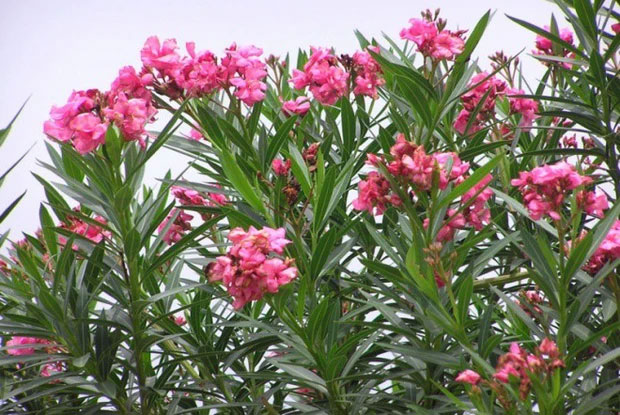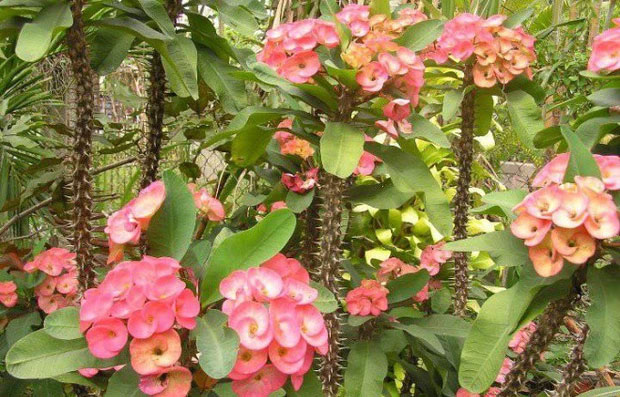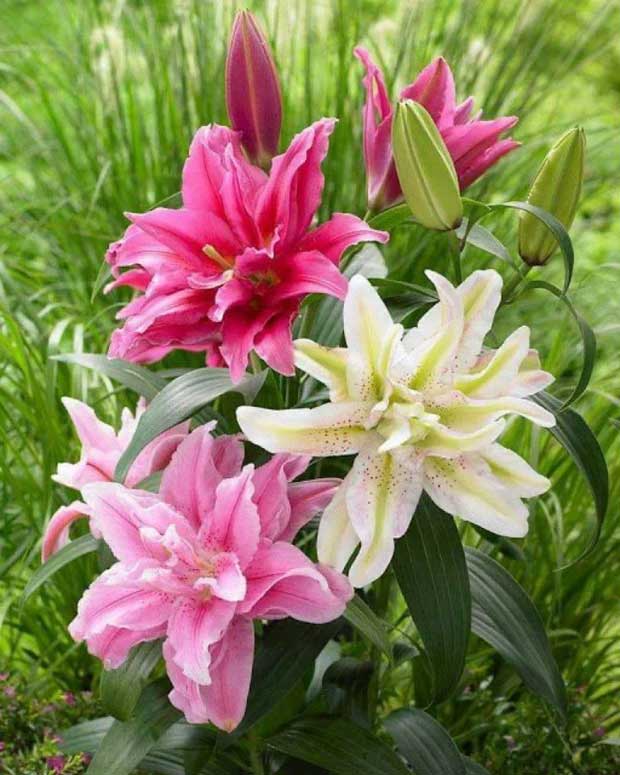The purpose of growing flowers at home is to beautify the living space and nurture human emotions, which is why flower cultivation can be considered very beneficial for health. However, there are many types of flowers that look beautiful but are not suitable for indoor display; on the contrary, they can negatively impact the health of your family, and it is best not to grow them.
Poisonous Flowers

Most of these poisonous plants are toxic throughout the entire plant, including the flowers and fruits.
Many types of flowers bloom beautifully, but they all possess some degree of toxicity. However, don’t worry; as long as we do not mistakenly eat them or have direct contact with the skin, there should be no issues. The only thing to consider is that if there are young children in the house, it is best not to keep such poisonous flowers to prevent any accidents where children might ingest the flowers or fruits of these plants.
Some examples of poisonous flowers include Hibiscus, Oleander, Poinsettia, Purple Heart, and Coral Plant. Most of these poisonous plants are toxic throughout the entire plant, including the flowers and fruits. Young children are often curious and tend to pick flowers and fruits to play with, so it is best not to have these types of plants in the house to avoid unfortunate incidents.
Thorny Plants

According to feng shui, thorny plants like cacti should not be grown indoors.
Many types of cacti are quite easy to grow and care for, making them popular among many people. However, according to feng shui, thorny plants like cacti should not be grown indoors.
The sharp thorns around the plant create a high level of negative energy, causing bad energy in the home, which can affect the homeowner’s wealth and health. Additionally, placing a cactus in the living room, where family members gather and relax, can also negatively impact the harmony among family members.
Scented Flowers

Strongly scented flowers can cause headaches and discomfort.
Many people enjoy displaying a few pots of fragrant flowers in their homes, as the scent of flowers can help people feel refreshed and more comfortable. However, this is only true for flowers with a light, delicate fragrance, such as jasmine or magnolia. Strongly scented flowers like lilies and lavender should only be placed outside; otherwise, their scent may lead to headaches and discomfort.
Flowers with Negative Meanings
Growing flowers at home not only requires them to be beautiful and vibrant, especially during festive seasons, but many people also care about the meanings of the flowers. Many prefer to cultivate certain types of flowers and ornamental plants that bring good fortune, such as the longevity flower, happiness plant, and money tree.
Flowers that carry negative meanings are not necessarily bad, but they can create an unsettling atmosphere when kept indoors, such as chrysanthemums, hibiscus, and black roses. If they do not evoke feelings of joy and comfort, it is better to avoid them and seek out plants with more positive meanings to display.


















































